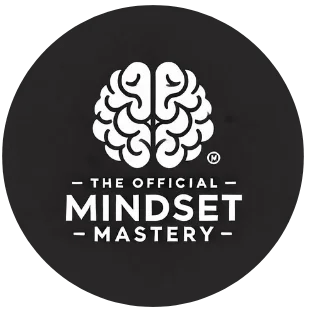Anxiety can be a debilitating condition, affecting millions of people worldwide. Fortunately, meditation has emerged as a powerful tool to combat this pervasive issue. In this article, we’ll explore the role of meditation in reducing anxiety and provide practical tips for beginners to embark on their mindfulness journey. Whether you’re struggling with daily stress or seeking inner peace, these techniques can help you cultivate a calmer mind and a more balanced life.
Understanding meditation and its impact on anxiety
Meditation is a practice that involves focusing the mind to achieve a state of calm and clarity. This ancient technique has gained significant attention in recent years due to its proven benefits in reducing stress, anxiety, and symptoms of depression. According to a 2014 study published in JAMA Internal Medicine, mindfulness meditation programs showed moderate evidence of improving anxiety and depression.
The power of meditation lies in its ability to quiet the constant chatter of our minds and bring our attention to the present moment. By doing so, it helps us break free from the cycle of worrying about the future or ruminating on the past – two common triggers for anxiety. Regular meditation practice can lead to:
- Reduced stress and anxiety levels
- Improved focus and concentration
- Enhanced emotional well-being
- Better sleep quality
- Lower blood pressure
- Increased self-awareness
These benefits make meditation an invaluable tool for managing anxiety and promoting overall mental health. As someone who has personally experienced the transformative effects of meditation, I can attest to its power in cultivating a more balanced and peaceful state of mind.
Getting started with meditation: a beginner’s guide
If you’re new to meditation, getting started can seem daunting. However, with the right approach and mindset, anyone can learn to meditate effectively. Here are some practical tips for beginners:
- Find a quiet place and sit comfortably. This could be a corner of your bedroom, a peaceful spot in nature, or even your office during a lunch break.
- Set a short time limit. Start with just 5-10 minutes per session. You can gradually increase the duration as you become more comfortable with the practice.
- Focus on your breath. Pay attention to the sensation of air entering and leaving your nostrils, or the rise and fall of your chest.
- Notice when your mind wanders and gently return your focus to the breath. This is a normal part of meditation, so don’t get discouraged.
- Be kind to yourself when you get distracted. Meditation is a practice, and like any skill, it takes time to develop.
Remember, there’s no “right” way to meditate. The key is to find a method that works best for you. Some people prefer guided meditation techniques, while others enjoy silent meditation. Experiment with different approaches until you find one that resonates with you.
Exploring different types of meditation for anxiety relief
There are various types of meditation, each with its unique benefits for anxiety relief. Here are some popular techniques you can try:
| Meditation Type | Description | Benefits for Anxiety |
|---|---|---|
| Mindfulness Meditation | Focuses on being aware of the present moment without judgment | Reduces rumination and worry |
| Body Scan Meditation | Involves systematically focusing on different parts of the body | Relieves physical tension associated with anxiety |
| Loving-Kindness Meditation | Cultivates feelings of compassion towards oneself and others | Promotes positive emotions and reduces social anxiety |
| Walking Meditation | Combines mindfulness with physical movement | Helps release nervous energy and improves focus |
Each of these techniques offers unique benefits for managing anxiety. For instance, mindfulness meditation practices can help you become more aware of your thoughts and emotions, allowing you to respond to anxiety triggers more effectively. Body scan meditation, on the other hand, can be particularly helpful for those who experience physical symptoms of anxiety, such as muscle tension or rapid heartbeat.
As Thomas Harper, a renowned meditation expert, often says, “The key to finding the right meditation technique is to experiment and listen to your body. What works for one person may not work for another, and that’s perfectly okay.”
Incorporating meditation into your daily routine
Consistency is key when it comes to reaping the full benefits of meditation for anxiety relief. Here are some tips to help you incorporate meditation into your daily routine:
- Start small: Begin with just a few minutes each day and gradually increase the duration.
- Choose a consistent time: Many people find it helpful to meditate at the same time each day, such as first thing in the morning or before bed.
- Use reminders: Set alarms or use meditation apps to remind you to practice regularly.
- Be flexible: Remember that meditation can be practiced anywhere – at home, at work, or even while commuting.
- Combine with other relaxation techniques: Consider pairing meditation with mindful breathing techniques or gentle yoga for enhanced benefits.
It’s important to note that while meditation can be a powerful tool for managing anxiety, it’s not a quick fix. It may take time and consistent practice to experience the full benefits. Be patient with yourself and remember that every moment spent meditating is a step towards better mental health.
For those who are new to meditation, starting with a simple introduction to meditation can be incredibly helpful. Many people find that guided meditations or meditation apps provide a structured way to begin their practice and stay motivated.
In conclusion, meditation offers a natural, accessible way to reduce anxiety and promote overall well-being. By understanding its benefits, exploring different techniques, and incorporating it into your daily routine, you can harness the power of meditation to cultivate a calmer, more balanced life. Remember, the journey of meditation is personal and unique to each individual. Embrace the process, be kind to yourself, and watch as the transformative effects of this ancient practice unfold in your life.





